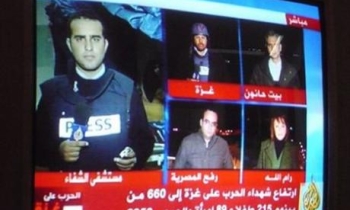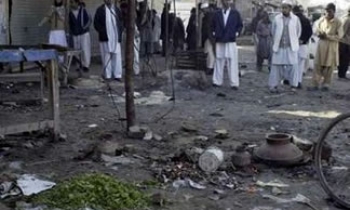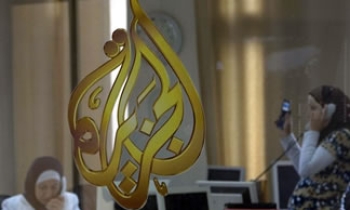Bloggers in the Middle East have been attempting to make sense of the furore that followed the publication of cartoons of the Prophet Mohammed. The following is a selection of some of the best.
It is not hard to find Islamist sites in the region and beyond promoting the message that it is incumbent on Muslims to "defend God's messenger, the Prophet Mohammed" against attacks in the western media. It is the Muslim clerics who must bear the responsibility for inciting their followers to violence, several bloggers conclude.
Writing on Aqoul, the Middle East discussion site, one contributor is highly critical of the role of Muslim clerics in the region - including the popular moderate Egyptian preacher Amr Khaled - whose broadcasts reach millions.
The clerics' "almost primary school religious class sermons" presented the view that "there is evidence from the Quran and the Sunna [traditions of the Prophet] to prove that the defence of the Prophet and the chastisement/punishment of infidels is incumbent upon the Muslim population."
In seeking to use the cartoon incident to forge a sense of solidarity among Muslims, they ended up presenting the affair to their followers as evidence that the west rejects the Islamic World, the author adds.
Habib Trabelsi, writing from Paris for Middle East online, notes that some Muslim extremists have gone further, using the furore over the cartoons to rally the faithful to a jihad or holy war.
He cites the hardline Saudi cleric Sheikh Badr bin Nader al-Mashari as saying in a voice recording posted on an Islamist website. "Brothers, it's war against Islam..., grab your swords", adding that the cartoons are "part of the war waged by the decadent West against the triumphant Islam".
"To the billion Muslims: where are your arms? Your enemies have trampled on the prophet. Rise up," said the sheikh, who is the imam of a mosque in Riyadh, the Saudi capital.
At the other end of the religious spectrum, the Middle East discussion forum, al-Hiwar, offers a quote from Abdullahi Ahmed An-Na'im, the Sudanese religious scholar. The following was written on behalf of 'the silent majority' of moderate Muslims with reference to the Salman Rushdie affair:
"Although many contemporary Muslims would privately object to shari'a's suppression of freedom of belief and expression, very few are willing to express their objections publicly for fear of being branded as apostates themselves - guilt by association....To help these Muslims overcome their inhibitions, I have shown that shari'a was in fact constructed by Muslim jurists over the first three centuries of Islam....It should therefore be possible for contemporary Muslims to undertake a similar process of interpretation and application of the Quran...in the present historical context to develop an alternative public law of Islam which is appropriate for implementation today."
Ashraf al-Mansour, writing for Aqoul, finds it noteworthy that the nature of the protests differed so widely in the Middle East region. There were almost no demonstrations in the most populous Arab country, Egypt - home of the Muslim Brotherhood - but the violence in Palestine and Syria stood out as "extraordinary".
Al-Mansour sees this as an indication that the demonstrations were more rooted in the particular local situation rather than in an "Islamic rage". It is not that Egyptians, Turks or Iranians are inherently less violent than Palestinians and Syrians, but because the governments in those countries "simply didn't allow any violence against European institutions".
He notes that in Palestine, it was an offshoot of the secular Fatah - the al-Aqsa Martyr’s Brigade - that led the demonstrations against the cartoons, rather than the overtly Islamist groups Hamas or Islamic Jihad. This he sees as a reflection of the lack of authority of Fatah over its own followers in contrast with the discipline of Hamas.
The Lebanese government, on the other hand, "is the weakest in the region - but the ISF (Internal Security Forces) would rather shoot at demonstrators than let them damage an embassy."
Or Does it Explode draws attention to another cartoon controversy eight years ago, in which the French authorities demonstrated a less than heroic response to the defence of freedom of speech. In 1988, the regime of Saddam Hussein threatened to withdraw funding from an exhibition in Paris that featured a cartoon by the Syrian Ali Farzat satirising Arab military regimes.
"Although the show was on free French soil, Farzat's cartoon was removed, an example of how the regimes' repression is so often accepted, and even reinforced in the West. Draw your own parallels." The blogger goes on to note, though, that back in 1988, "there was a small happy ending: the other cartoonists rebelled, adding their own names to the offending picture and threatening to remove their work. For once, Iraq backed off."
The last word must go to Sa'ad, author of the The Angry Arab News Service blog:
"I may understand if somebody wants to boycott the Danish publication that printed the cartoons. But why boycott Denmark? The Danish people are not responsible for whatever a Danish publication prints. I have been to Denmark and find the people there to be friendly and nice. And I like the pastries. The Danish people may have been only guilty of electing a right-wing government that sent troops to Iraq. But that issue does not seem to anger Muslim/Arab demonstrators who are busy being angry at the cartoons.
"Angry Arab is often angry at Western and Eastern anger. I often identify with neither. Where do I go? Do they have soy milk on space stations?"









